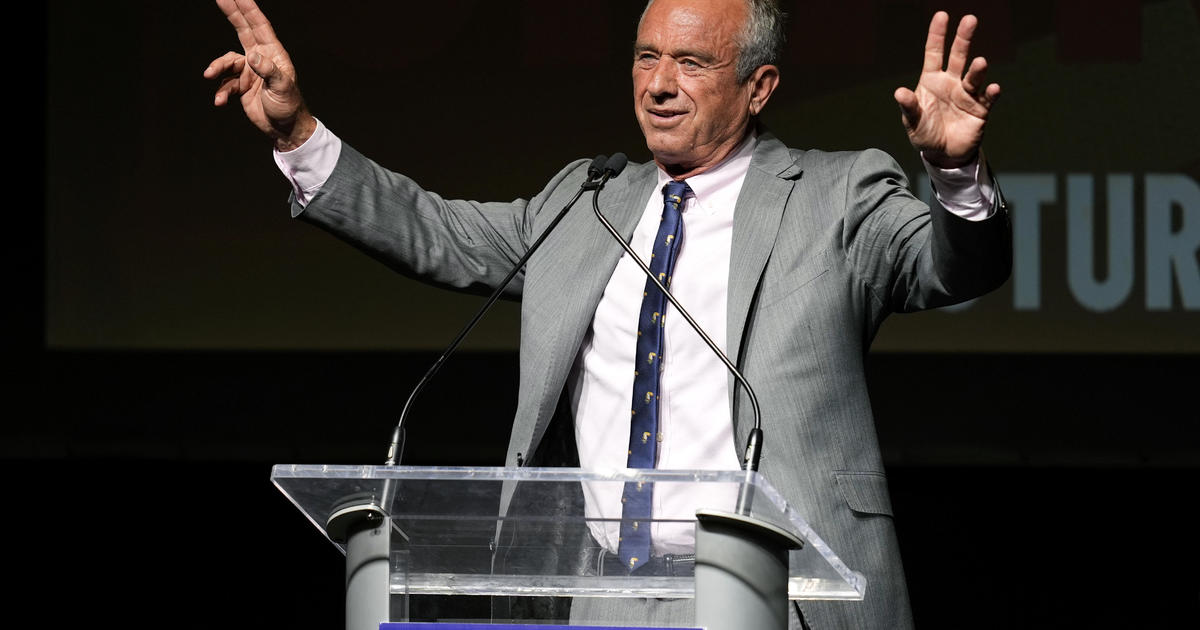Fascinating Tech From Michigan's CES Delegation
My favorite thing about covering the International Consumer Eectronics Show is seeing all these cool Michigan companies -- many of which you never hear of outside their occasional mention in GLITR, but which are often giants in their respective high-tech niches.
Wednesday, Press Day at CES, was no exception.
My first stop was the booth of Ada-based Fulton Innovation, where I saw the latest in wireless power innovations -- including some applications that look brand-new to me.
Fulton is a subsidiary of Amway Corp., which has been using magnetic fields to transmit power across open space without wires for years for its water pumps. Now, that technology is being eyed to wirelessly recharge gadgets and to run home appliances.
Probably my favorite applications of the technology were a wireless electric frying pan -- you just put it in the right place on a countertop embedded with Fulton's eCoupled wireless power technology, turn it on, and you're cookin'. Fulton showed off a fry pan tied to a tablet computer that offered step-by-step recipe directions and timing.
Fulton also showed absolutely amazing printed electronics on cereal boxes -- just move the box to the right spot on an e-Coupled enabled shelf, and the print on the box lights up like a neon sign. Fulton director Bret Lewis said the technology will add only a few pennies to the cost of a box.
The booth also features a dreamboat Tesla electric sports car that is charged by eCoupled technology just by parking over the right spot.
Lewis said Fulton won't be manufacturing such technologies itself, but will license its technology to packaged goods companies and appliance makers and consult with them on "how to use it and get the most of it."
------------------
Next I stopped by the booth of Livio Radio, the Ferndale-based maker of very cool Internet radio technology. Basically, you hook a Livio into your stereo (or just use one of their table radios) and if the radio can find a Wi-Fi Intenret connection, it'll bring you 40,000 Internet radio streams.
Livio founder Jake Sigal said his staffers will be meeting with everyone from retailers to distributors to potential investors to content partners like Pandora at CES.
Livio's slogan for CES is just perfect: More Music, Less Work.
Sigal said he brought eight staffers to a good-sized booth at CES this year. He launched the company at CES in 2008.
By the way, stay tuned -- Livio is planning a major new product announcement for Friday.
--------------------------------------------------------------
Next up was V.I.O. Inc., the Marquette developers of miniaturized video recorders for extreme sports, law enforcement, security and the military.
It's the first time at CES for V.I.O., marketing director Clint Slack said. "Most of the shows we've gone to up to now have been sports or military," he said.
V.I.O. will staff its 10-by-10-foot booth in a rather remote corner of the Las Vegas Convention Center -- that's where first-timers usually end up -- with five staffers this week.
"We've got lots of meetings focused on PR and media outlets, trying to get the word out," Slack said. "We also want to meet more retailers -- not necessarily big box stores right away, but say, camera shops."
V.I.O. introduced a new high-definition 1,080-line recording system in November. It sold out its initial production run of 3,000 units within 24 hours and the company is frantically working on manufacturing capacity to make more.
The HD version retains the form factor of its predecessor -- the camera is about the size of a chap stick, while the recording device is a small, rugged box about the size of a TV remote control or a walkie-talkie.
The suggested price of the new HD device is $599. That's lower than the $850 price of the standard definition recorder when it was introduced in 2007.
-------------------------------------------------------
My next stop was a genuine Michigan entrepreneurial success story -- Brian Riederer of Clinton Township-based PN Devices, the United States subsidiary of PN Electronics of Hong Kong.
Riederer was involved in the earlier "GPS for Dummies" device, and got the tablet device bug. PN is making a wide variety of tablet devices for everything from Web browsing to video watching to GPS in screen sizes of five, seven, eight and 10 inches.
Riederer said his company will meet with a retailer and build a tablet device to that retailer's exact specifications.
"The nice thing about being the factory is that we can build tablets that are just exactly what somebody wants," Riederer said. "We produce them and brand them for the company."
And Riederer said PN will insist on better quality screens and software than competitors making inexpensive tablets.
Riederer is also sponsoring a booth of a company called NDrive at CES. That company makes software for tablet devices.
Riederer also confirmed to me that he's a genuinely nice guy, mentioning that he's a supporter of The Heat and Warmth Fund, the charity to provide home heating support to the less fortunate that has an annual WWJ Newsradio 950 radiothon.
----------------------------------------------------------
First time entrepreneurs are great -- so enthusiastic and fun to be around. And Mike Burns, president of Ann Arbor-based Handeholder, is just that guy.
Burns said his background is in computer systems and design, but that his avocation has been designing timing and results technology for running events. He's begun using tablet computers like the iPad for those tasks -- but it's frustrating because he has to use both hands to hold the tablet and frequently almost drops it.
So he came up with the Handeholder, a hand strap that affixes to the tablet computer with novel Velcro-like technology developed by 3M and features an adjustable elastic strap for the hand. In essence, the gizmo allows you to hold the tablet securely with one hand. And Handeholder accessories allow the tablet to be held securely in a frame, on a tripod, or on a C-clamp mountable device that will hook to everything from a bookshelf to a dashboard.
The Handeholder is 100 percent Michigan-made, Burns said with pride -- the adhesives are made in Plymouth, the straps by a company in Hillsdale, the plastics by a company in Saline, and the metal parts by an Ann Arbor company. He said some business advisers have told him to offshore production -- but he says he won't, as long as the product can make a buck made at home.
The Handeholder is $39, as are the accessory stands. A larger Handeholder with a double strap that allows it to be affixed around a leg is $49.
--------------------------------------------------
My final stop of the day was Troy-based Sonic Boom, a company that dates back to 1969, when founder Adam Kollin designed a device that flashed lights for his deaf mother when the phone or the doorbell rang.
Today, Sonic Boom sells tens of thousands of extra-loud alarm clocks a year -- many of which also flash and shake the bed. The market now has moved beyond the fully deaf into the merely hard of hearing, and those who are merely hard to wake up from their slumbers.
Prices range from $30 to $76. Sales manager Edward Brink tells me the company comes to CES looking for contacts with retailers -- Sonic Boom over the years has picked up resellers ranging from Sharper Image to Amazon.com at CES.
The hot product now is Sonic Boom Jr., a smaller, lighter version of its best-selling unit that retails for $34. It features a 102-decibel alarm. Ouch!
---------------------------------------------------
I still have a dozen or so more Michigan companies to visit. I'll try to get to them Thursday!



